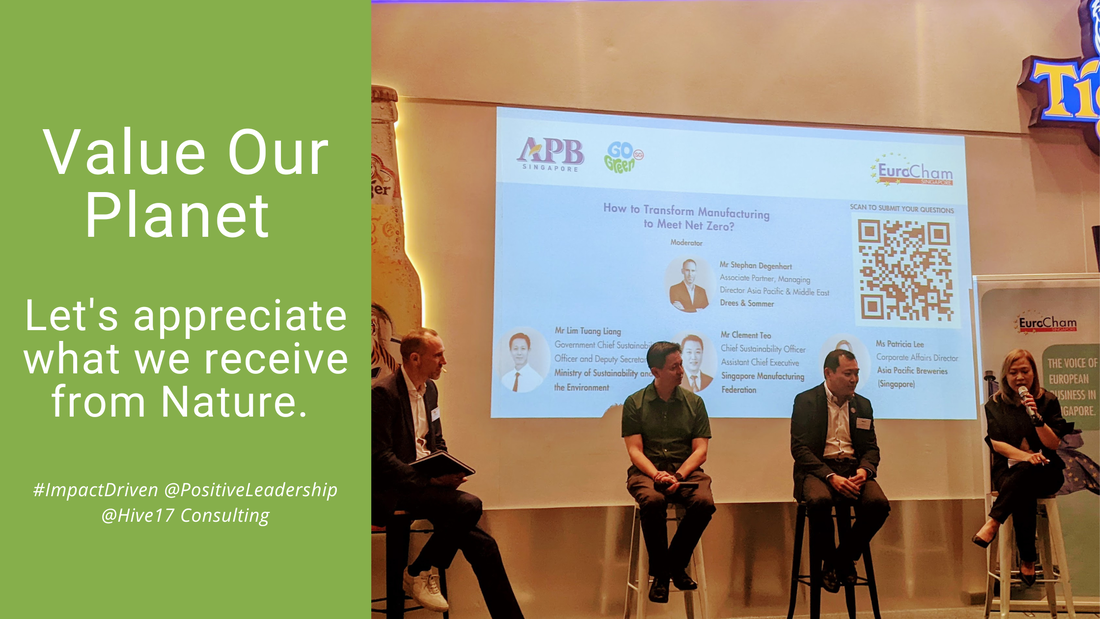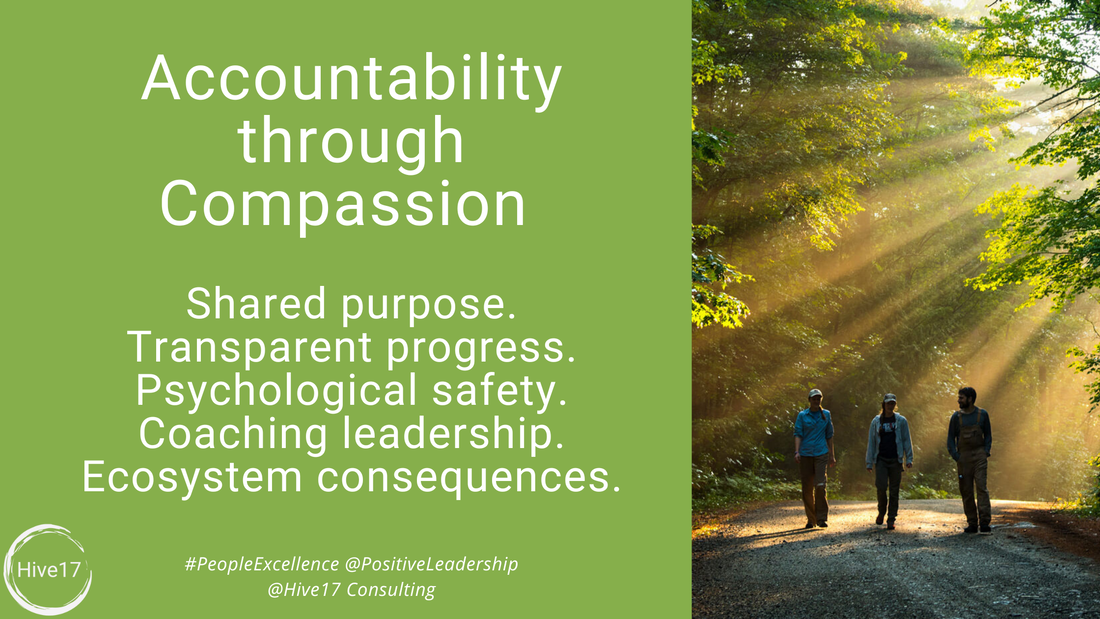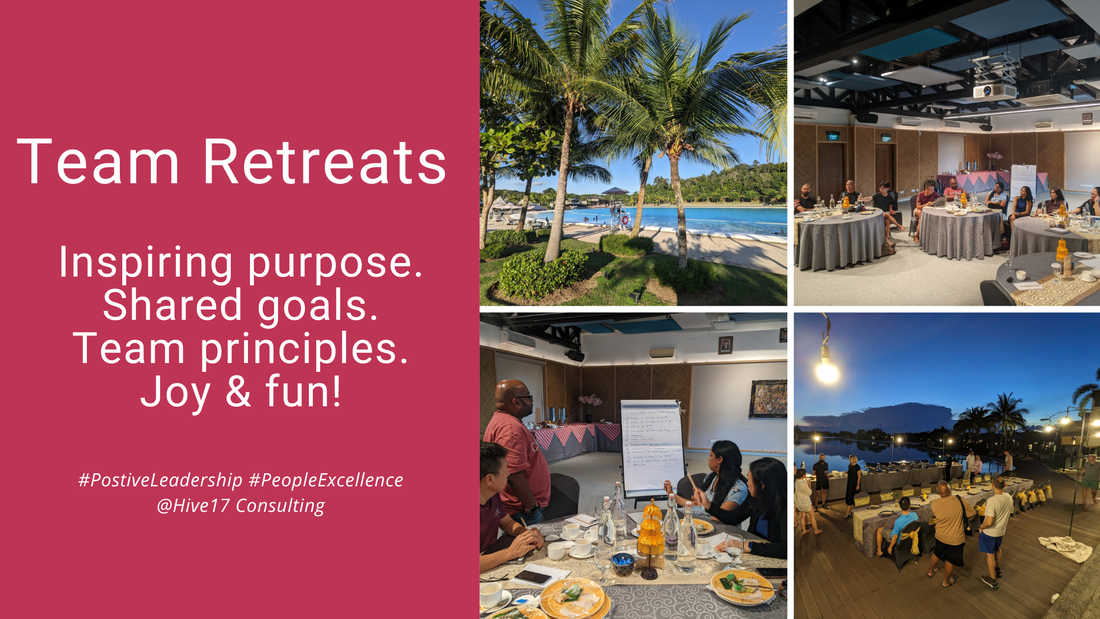|
This week the EuroCham has organised a great event about "How to Transform Manufacturing to Meet Net Zero?" with a very vivid and insightful panel. One highlight I want to share is the answer to the question: what would you wish if you had a magic wand?
"If I had a magic wand, I would bring people back to value our planet! Create that feeling of appreciation for what we are receiving from Earth. I wish that people would see the value they are getting out of nature. It is time to pay back." Very powerful words and I can only strongly support this wish. The event was linked with an introduction and visit of the production site of Asia Pacific Brewery, and the company is very strong with their impact related activities. The organisation is passionate about their 'brewing a better world' campaign and clearly working along the triple bottom line of planet-people-profits. Let's continue to strengthen the awareness that sustainability is a huge business opportunity. We as individuals, as organisations and as societies can greatly benefit.
0 Comments
Hands up who struggles with people that just do the minimum work? Yes, you are not alone. And it is frustrating to see the potential in people not being used to bring success for the company, for the team and for the individual. Your organisation might have great team bonding and a lot of fun. How well does this translate that everyone is giving their best? In my experience, being a nice and kind leader has its strong limitations. We need to go beyond this and be inspirational and supportive - I'd like to call this positive leadership.
In this context, I came across this Harvard Business Review article that highlights the challenge that we can't push and force people to feel accountable. Fear is a very bad motivator. The alternative, which leads to long-term and a deeply rooted ownership, is creating accountability using compassion. How can we go about this? It is about creating a fertile environment that cultivates that feeling of ownership. Here are some of the key elements for this. One elemental ingredient is a shared purpose - a clear goal that is collectively defined. All team members can identify themselves with this purpose and it provides meaning. This shared purpose is the Why, the direction that enables our daily decision-making. Setting clear goals is one thing; reviewing that we are walking in the right direction is another. No point in setting targets if we don't follow up. Effective teams develop routines to frequently, transparently review their achievements - this means identifying what is needed to further advance towards the defined key results, and sometimes have the courage to adjust them when circumstances have changed. One of the biggest blockers for accountability is the lack of a psychological safe environment - in simple terms: group trust. An environment where people can share their thoughts, are feeling respected, and are having fun, this will bring the people closer to their team members and to the organisation as such - a starting point for accountability. And it provides a lot of energy and drive to give their best. Everyone in the organisation has valuable expertise. When people are able to contribute their knowledge and experience to the advancement of the team, then they will feel proud - about themselves and about the team. So, it is important to be a coach and allow people to unfold their potential. As an experienced manager you might know the solution. Though, it is fundamentally more important to lead your people to find the solution themselves (with your support). Allow your team members to identify and define the How themselves - this allows you to avoid micromanagement. One important question here: if we are such a leader, are there any consequences? Yes, for sure; and they are not your typical: if you don't achieve your targets, you will be fired. There are always real consequences, typically from the ecosystem we are in: our customers are not able to sell their products based on our delays; we will not be able to be profitable; we will struggle to build confidence with our stakeholders; etc. This means we are appealing to their compassion and creating intrinsic motivation. Let's start the change and focus on enabling teams to give their best. Based on structure, routines and mindsets. Source: Hold Your Team Accountable with Compassion, Not Fear; Harvard Business Review, February 2023 We just finished a team retreat and during the closing, the client shared "this was amazing, we never got the people to share so much. The sessions were fun, insightful and engaging. Thank you so much!". How did we get there?
One of the thing we can observe with many companies, friends, clients, and teams we are working with: we are overwhelmed, we are stuck in a rat race. Looking at the "Second Quadrant Model", this means we are stuck in the first quadrant: our important and urgent tasks. We don't have the bandwidth to allocate time for the important and non-urgent tasks, which allow us to build an effective work-environment and reflect on our strategy and priorities. How can we facilitate this change? This is where team retreats come in. While an investment in time and money, they allow us to create the necessary brain space to build a solid foundation for team effectiveness. This is the exemplification of Slowdown to Speedup! So, how shall we go about team retreats? There are some principles for successful team retreats; here is my take: a) enable the participants to switch off from their daily grind; b) lots of time for quality, social interactions; c) the managers are participants on the same level as everyone else (an independent, external facilitator helps); d) focus the sessions on topics in the second quadrant. What did I miss here? Ok, great principles... What shall we discuss concretely? First of all, start with an overall theme for the retreat which provides the context for the conversations. Often we come across the broad opportunity around 'improving collaboration' and 'building ownership'. Though it can also have themes like 'shaping our desired culture', 'discovering new market opportunities', etc. As a next steps, it is important to provide a structure and path for constructive and effective discussion. Here is an approach:
Great - as a team, we had 2-3 days off from our daily work and enjoyed a fantastic time with our family at work. And then we come back to the office and we will be very quickly overwhelmed. We want that the great stuff we discussed during the retreat is continued back at work; we want that we keep the momentum. For that, it is vital that we immediately build routines that carve out space for our second quadrant tasks and actions. And for sure, the foundation for this should be defined at the retreat. How do you experience successful team retreats? |
Subscribe
Receive our monthly themed summaries of our thoughts: click! TimTim is a change practitioner in the area of innovation and excellence. He is working with teams to accelerate innovation, collaboration and agility. Categories
All
Archives
July 2024
|




 RSS Feed
RSS Feed